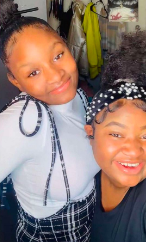
It has been fifty days since 16-year old Ma’Khia Bryant was shot four times by Columbus police officer Nicholas Reardon mere seconds after arriving at her foster home. We are still awaiting for Ma’Khia Bryant to receive justice for a senseless death. Justice is not only confined to the prosecution of Officer Reardon. Justice must also involve addressing the foster care system that failed to protect her. According to press reports, that foster care home has been the scene for over twelve 911 calls in past years. Such evidence possibly suggests a disturbing pattern. The Chisholm Project supports the efforts of Rep. Joyce Beatty of Ohio, Sen. Sherrod Brown of Ohio and Sen. Ron Wyden of Oregon call for an inquiry by the US Department of Health and Human Services’ Administration for Children and Families and a private independent federal investigation.
There must be efforts to address the disregard for human life by the Columbus Police Department. At a press conference the interim Chief of Police Michael Woods explained that Reardon was not required to announce himself, give a warning, or de-escalate the situation because Ma’Khia was in possession of a weapon. The fact that no efforts to understand the conflict or the use of de- escalation tactics draws a number of concerns around policing.

Despite the protests that erupted in Columbus in the days following the public outcry has dwindled. But For those outside the city, a number of commentators, analysts and public figures joined the Columbus Police Department’s claim that the 16-year old Black girl was responsible for the shots that killed her and that the white male officer who pulled the trigger was not. Figures like LeBron James, a native of Ohio, who called for accountability were swiftly silenced. By the time of Ma’Khia’s funeral on April 30th, the calls for justice in her name had almost completely subsided. Unlike other innocent Black men killed at the hands of police there was little or no coverage of her funeral proceedings.
After the global protests in the aftermath of George Floyd’s killing, the often callous response we’ve seen to the murder of Ma’Khia Bryant is damning. But we have been here before. If it had not been for a very small group of activists who insisted otherwise, Breonna Taylor’s story, too, would have been drowned out. History has taught us that no one will fight for Black women and girls unless we take action to change the system and pressure social justice movements to center the lives of Black women and girls. Therefore, we propose the following action steps in Ma’Khia Bryant’s name:
- Join Congresswoman Joyce Beatty (D-OH), Senator Sherrod Brown (D-OH) and Senator Ron Wyden (D-OR) in their request for a federal investigation into the Ohio foster care system. These lawmakers have requested that the U.S. Dept. of Health and Human Services investigate the Ma’Khia’s experience in the foster care system. Voice your support for their request by calling HHS at 1-877-696-6775 or Secretary Xavier Becerra on social media.
- Contact U.S. Attorney General and demand a federal investigation into the Columbus Police Dept. AG Garland has already pledged to launch probes of the Louisville and Minneapolis police departments after the killings of Breonna Taylor and George Floyd. Join Ma’Khia Bryant’s family in demanding an equally thorough investigation of the Columbus Police Department. Send him a message that the Justice Department must also pay attention to policing practices that directly affect Black women in girls, such as those which enable officers to assault Black women and girls in their own household. Call the U.S. Dept. of Justice at 202-353-1555.
- Donate to organizations that defend the lives and rights of Black girls within their families. Child protective agencies are often quick to stigmatize Black mothers, quick to divide Black families but slow to respond to the needs of Black children who cry out for help when the state-mandated arrangement fails them—as Ma’Khia did repeatedly before her murder. Support these organizations that fight for Black child welfare:
- The Fostering Progressive Advocacy Foundation (NYC) http://www.fpafoundation.org/
- National African American Families First and Preservation Association https://www.facebook.com/NAFPAorg/
- Parents of Black Children https://parentsofblackchildren.org/
- Reimagine Child Safety (LA) https://twitter.com/DontTakeOurKids
- Organize your local parent-teacher associations to advocate for children without police involvement. The public school system is a primary site for law enforcement intervention in the lives of Black girls. Instead of a site of punishment, it can be a site of positive interventions. You can change that by demanding alternatives at your local Parent or Parent-Teacher Association. Use your PA or PTA as a basis for establishing mutual aid networks that parents and students can seek out instead of law enforcement. Also use these meetings to to demand that your school administration review its disciplinary policy with respect to Black girls.
- Use your vote to force change: In upcoming local elections such as the NYC Mayoral race, support candidates who will use public resources to provide direct services and financial assistance to Black children and families. Reject politicians who plan to reward police departments for killing children like Ma’Khia with continued funding.
- Take the initiative to immerse yourself in research that places Black women and girls at the center of social justice issues. Use this knowledge to inform others about the unique challenges facing Black girls like Ma’Khia. Here is a non-exhaustive list:
- The Black Girls Matter Report by Kimberle Crenshaw, Priscilla Ocen & Jyoti Nanda https://44bbdc6e-01a4-4a9a-88bc-731c6524888e.filesusr.com/ugd/b77e03_e92d6e80f7034f30bf843ea7068f52d6.pdf
- Pushout: The Criminalization of Black Girls in Schools by Monique Morris
- Arrested Justice: Black Women, Violence and America’s Prison Nation by Beth Richie
- Invisible No More: Police Violence Against Black Women and Women of Color by Andrea Ritchie
- “How Racism in the Ohio Child Services System Impacts the Lives of Individuals Involved”—A 2020 Report by the Columbus Foundation and ChiByDesign https://jfs.ohio.gov/ocf/Pub-ODJFSRacismOCSFinalReport.stm